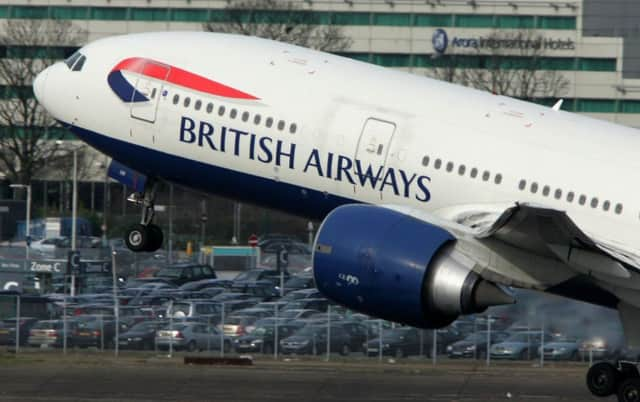IAG reports surge in profits


International Airlines Group (IAG) said operating profit before exceptional items rose 37 per cent to 975 million euros (£871 million) in the six months to June 30 as it was helped by lower fuel costs and a strong Easter.
Revenue edged up 0.9 per cent to 10.9 billion euros (£9.7 billion).
Advertisement
Hide AdAdvertisement
Hide AdIAG also said it doled out 65 million euros (£58 million) in additional compensation fees and baggage claims related to the IT meltdown over the spring bank holiday weekend.
Boss Willie Walsh said: “We’re reporting a very strong performance in quarter two.
“The underlying trend in unit revenue improved, benefiting partially from Easter and a weak base last year.”
The firm also was forced to stomach 44 million euros (£39.3 million) hit from the collapse in the value of the Brexit-hit pound.
Advertisement
Hide AdAdvertisement
Hide AdIAG issued a profit warning after the referendum on June 23, and in October warned that ticket prices may have to rise as a result of sterling’s slump.
In March, the group, which also owns the Aer Lingus and Iberia airlines, launched Level, a new long-haul, low-cost airline brand.
Mr Walsh said Level was proving a success and the group plans to expand the operation.
“In June, Level started long-haul flights from Barcelona to four destinations. Sales continue to be well ahead of our expectations. We’ve ordered three additional aircraft and are considering other European bases for the operation.”
Advertisement
Hide AdAdvertisement
Hide AdIAG said it expects full-year operating profit to show a “double-digit percentage improvement” and is forecasting an increase in second-half passenger unit revenue.
Shares were up 3% in morning trading.
However, the firm has drawn sharp criticism from unions after a series of strikes linked to pay disputes.
Unite said the profits showed that British Airways can easily afford to resolve the row with its mixed fleet cabin crew workers.
The union’s members are on strike until the middle of August and Oliver Richardson, Unite’s national officer for civil aviation, said: “These colossal profits confirm what we have always said - that BA can easily afford to solve this dispute.
Advertisement
Hide AdAdvertisement
Hide Ad“It is, frankly, obscene to keep thousands of BA’s workforce on poverty pay at the same time as the company makes millions of pounds.
“The airline, seems content to spend a fortune to break the will of their own workforce, rather than resolve their concerns over fair wages and punitive sanctions.”